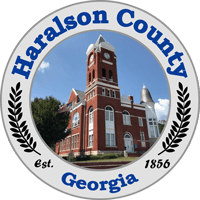Appointed Authorities
As in the rest of the nation, Georgia's local government authorities have been steadily growing since the 1950s. The growth in authorities reflects the increased public demand for specialized services and local government's reliance on alternative methods of service delivery. Authorities are often better suited to deliver these services since they focus on one specific function, allowing a greater degree of concentrated effort in providing services.
Financial considerations are also a very large part of the decision to provide services through an authority. As new programs are initiated, or new services required, the establishment of authorities may reduce the financial burden on cities and counties. Constitutional debt limitations are also an important reason for the increase in authorities since they are less restricted in their efforts to raise both capital construction and operating expenditure funds.
Local government authorities are separate entities created for a specific public purpose. Local governments create authorities as a means of providing a wide range of services to their residents and have used them in increasing numbers to deliver services. These purposes can include economic development, hospital operations, housing, the operation of a water and sewer system, and others. The largest percentage of authorities registered with DCA are development authorities, including downtown development, industrial development, and joint development authorities. The next most common type of authority is housing, followed by hospital and water and sewer.
The 1992 Census of Governments notes that authorities are by far the most rapidly growing type of government. Realizing the ever-increasing role authorities play in service delivery at the local government level, the General Assembly passed the Local Government
Method Of Creation
Under Georgia Statute, local government authorities can be created in three ways: by general enabling act, local laws, and Constitutional Amendments. Eleven types of authorities can be created through a general enabling act. The Haralson County Code of Ordinances provides for:
- Development Authority - seven resident taxpayers appointed to four-year terms
- Joint Hospital Authority - City of Bremen and Haralson County
- Joint Counties Development Authority (Haralson, Carrol, Heard and Polk) - nine directors. Each of the member counties appoints two members who are taxpayers residing in the appointing county. The ninth member of the board is appointed at the expiration of each term by one of the member counties on a rotating basis, as follows: Haralson County, Carroll County, Heard County, Polk County.
- Joint City-County Development Authority or Buchanan-Haralson - seven members, three appointed by the county, three appointed by the city and one alternatively appointed by the city and county (rotating appointee).
- Recreation Authority - established by the county and authorized and empowered to manage the operation of a county recreation league.
Solid Waste Management Authority - five members serving four year terms as follows: The board of commissioners or its designee; the Bremen Mayor or a designee; the Buchanan Mayor or a designee; the Tallapoosa Mayor or a designee; and a Waco Mayor or his designee. Terms are concurrent with elected terms.
Cities or counties are authorized to create authorities through general enabling legislation by passing an ordinance or resolution. The majority of authorities registered with DCA fall within this category.
Other authorities are formed under local law, to create a single, unique local government authority. Some authorities are created through this means even if there is a general enabling statute available. For example, several development and downtown development authorities were created under local law rather than general enabling statute.
The third possible method of creating a local government authority is through a Constitutional Amendment. These are similar to local laws; however, they must be approved by the voters of the affected jurisdiction and, as such, are included in the Constitution. Authorities can no longer be created by Constitutional Amendment, but there are some existing authorities that were created this way. Most of the constitutionally created authorities are development authorities.
Authority Operations
Authorities can be created to serve a single jurisdiction or may be established to provide services to multiple cities or counties. Most of the authorities registered with DCA were created to serve a single jurisdiction. Some authorities, however, are by their nature set up to serve more than one jurisdiction, such as regional solid waste authorities, regional jail authorities, and joint development authorities. Examples of other authorities that serve multiple jurisdictions include airport, hospital, housing, and development authorities.
Local government authorities may also function as either dependent or independent entities. If an authority's finances are included in a local government's audit or financial statements, or if its operating decisions are made by a local government's executive officer or governing board, it is considered to be dependent. All other authorities are classified as independent. Of those authorities registered with the Department, most indicated they were independent.
